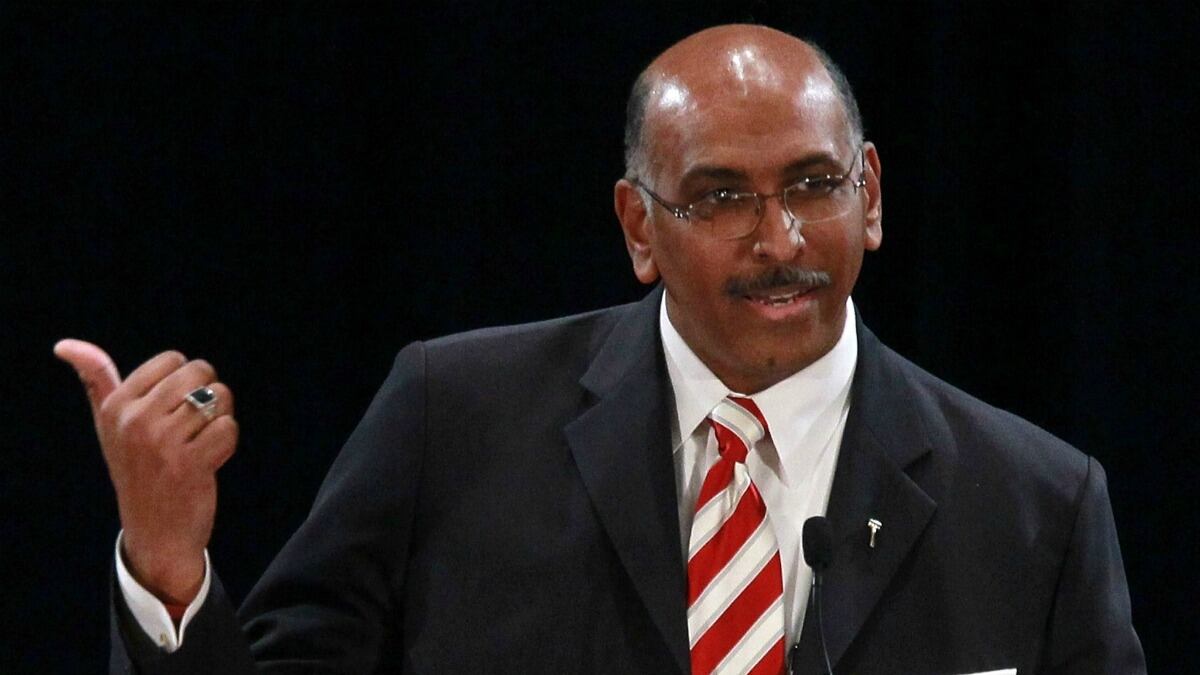
David Corn has a fascinating interview with former RNC Chairman Michael Steele. In it, Steele all but takes credit for making Mitt Romney's life difficult by admitting that he pushed for changes to the RNC rules to make it easier for a brokered convention to happen:
"I wanted a brokered convention," Steele tells me. "That was one of my goals." Why in the world would a party chairman desire apparent turmoil? To create excitement and shake up the party, Steele explains. So far this year, he has indeed succeeded in one regard: The Republican race remains unsettled. And that's unsettling many within the party's upper ranks.
This isn't a story about Michael Steele laying a mischievous plan to make Romney's life difficult. As David Corn recounts the story of how the RNC prepared its calendar, it becomes clear that all the rules were changed with the expectation that a longer primary would help the GOP:
Heading into the 2008 convention, Republican leaders, including Steele, a former lieutenant governor of Maryland who was not yet the party's chairman, saw that the Democratic base was energized, following the exciting, dramatic, and protracted nomination showdown between Barack Obama and Hillary Clinton. That titanic clash had created a sense of momentum for Obama. Steele and other Republicans were jealous.…Steele was looking to escape what he calls "the tedium of 2008." And he had plenty of allies within the party. "I was surprised at how many people liked the idea of creating tension within the process," he says, "so that an underdog like Rick Santorum could have as much bite or bark as Mitt Romney. Breaking up the line of succession and introducing more fluidity was very appealing to many committee members."
Corn also discovered that the rules which are now making Romney's life difficult were supported by Romney's people:
Though Steele was hoping to shake things up to make the 2012 race unpredictable, some Republicans suspected the reforms were actually being advanced to assist Romney. They believed that only a well-financed and well-organized candidate would be able to survive and thrive in a prolonged process. "They thought this was fixing the system for Mitt," a former party official says. And Heye notes, "By and large, if you supported Mitt Romney, you supported the changes."
None of this has gone according to plan at all. Romney-backers have not been able to take advantage of the rules to help their candidate and the long primary has not been increasing excitement in the GOP candidates who are running.
I suspect that real culprit here is not the calendar, but the candidates. If voters didn't think their options were so terrible they probably would not mind the long nominating process. As David Frum blogged a few weeks ago:
Democrats found it difficult to choose in 2008 because both their options seemed to them so delectably yummy.
Republicans have found it difficult to choose in 2012 because all their options have seemed to them so depressingly awful—and they keep hoping that some better choice will materialize if only they delay commitment long enough.
The Democratic dilemma in 2008 was like a confrontation with the dessert buffet at the Bellagio. The Republican dilemma in 2012 is more like an extra-depressing episode of Sex & the City.






